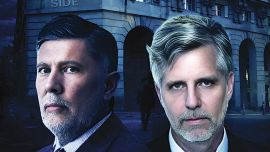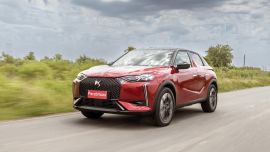As the pieces began to fell into place, one thing became extremely clear: Peronism will win in October’s presidential elections. As Tuesday’s deadline for registering political alliances loomed, both President Mauricio Macri and Renewal Front leader Sergio Massa played their cards. Massa’s final marriage of convenience with the more extreme elements of the Peronist party, particularly Cristina Fernández de Kirchner’s Unión Ciudadana (Citizens Union) had been hotly anticipated, and it eventually came to fruition on Tuesday, hours after Macri tweeted out that his running-mate would be none other than Miguel Ángel Pichetto, leader of the Peronist party in the Senate. With the “third way” effectively hollowed out from the inside, former Economy Minister Roberto Lavagna teamed up with Salta Peronist Governor Juan Manuel Urtubey to form the Federal Consensus 2030 party, in what appears to be an underdog candidacy more focused on creating the conditions for a future presidential bid by the younger vice-presidential candidate.
Pichetto’s choice as Macri’s VP came as a big surprise this week. The Senator from Río Negro had been highly critical of the Macri administration, yet he recently made it clear that put to choose between the standing President and a return to Kirchnerism, he would vote for Macri. Pichetto had also gone on a tour of the United States where he made it clear that Argentina would not default on its debt, an implicit show of support for the current government.
At the same time, Macri’s electoral team, led by Cabinet Chief Marcos Peña and Ecuadorian advisor Jaime Durán Barba, had already acknowledged the need to open up the VP seat to someone outside the President’s inner circle in a demonstration of political openness. It was hard to imagine a possible running-mate who would add votes, so instead they sought the approval of the socalled Círculo Rojo or group of influential decision-makers that includes businessmen, politicians, journalists, and intellectuals.
“We Argentines face a historic opportunity to consolidate our democracy,” the president tweted on Tuesday. “In the upcoming elections we will decide whether we want to live in a republic or return to populist authoritarianism.”
“We want a country where everyone can progress through their work. For that we need to integrate into the world and look toward the future. We want a democracy with pluralism, freedom of the press and defence of human rights,” he added.
“For all this we will need to build agreements with a lot of generosity and patriotism, where all Argentines who share these values can contribute from their place. Bearing this in mind, I want to announce that Miguel Ángel Pichetto will accompany me as a candidate for vice-president of the nation.”
Hours later, Pichetto held a press conference in the Senate, where he noted “Macri called me this afternoon and asked me to accompany him, I accepted immediately.” He characterised his new role as one defined by “loyalty” and added he agreed with the Macri administration on issues including international relations and economic development. The markets soared in the aftermath, as stocks surged and the feared riesgo país index which measures the spread of Argentine sovereign bonds over their US counterparts dipped.
PERONISM ALL AROUND.
Not far from Congress, Massa held his own press conference after meeting with José Luis Gioja, national chairman of the Justicialist Party, and members of Fernández de Kirchner’s entourage. After weeks of flirting with Alberto Fernández, the man from Tigre had finally come to an agreement.
“I wish to thank the leaders of the PJ for taking the initiative to visit us and listen to our proposals for government, which are the commitments we must take on for Argentina from December 10 onwards”, Massa said in a brief statement Tuesday. The following day, Massa met face to face with the leading opposition candidate, Fernández, at Unión Ciudadana’s electoral bunker, where they finally sealed the deal.
Interestingly, it wasn’t entirely clear what Massa’s role would be, just that they would run together. Immediately after the meeting, rumours indicated Massa would compete for the presidential candidacy in the upcoming PASO primaries, which could hypothetically put him in a position where he would share the ticket with former political boss, Fernández de Kirchner. There’s time for that, though, as the final spots must be decided by June 22 for the primaries which will be held on August 11.
EVEN MORE PERONISM.
In an anti-climactic ending to all of the electoral speculation, Lavagna finally inked a deal with Urtubey to present the third major alliance. Lavagna, who for months had flirted with his candidacy and was only forced to admit it after Fernández de Kirchner’s surprise decision to pick her former Cabinet Chief to lead the opposition ticket, saw his space progressively lose its electoral punch as first Massa, then Pichetto moved away. What was going to be a group of Peronist governors, brought together by Pichetto, supporting a technocrat candidate who derived his chances from having led the nation out of the 2001-2 crisis, and counting with Massa’s electoral support, quickly lost its shape.
“The majority of Argentines need and claim an electoral space as an option overcoming (the polarisation) which permits them to start on a path of growth, social justice and unity to emerge from the tremendous crisis which is affecting our industries, our small and medium-sized companies (pymes) and fundamentally the people. At times when personal projects outweigh convictions, it is more necessary than ever to have generous and democratic attitudes up to the circumstances. Federal Consensus proposes a path of transformation which Argentina and the welfare of its inhabitants imperiously need, leaving behind, for once and for all, the grieta rift which has caused so much harm,” read a joint statement released on Wednesday.
Urtubey, who had rejected Macri’s offer to accompany him in the ticket, and Lavagna, who decided not to formally enter the campaign until the very end, had formalised.
OFF TO THE RACES.
With the three main electoral tickets in place, the campaign is formally underway. Interestingly, Ferández de Kirchner’s move to the centre, which is based on Alberto Fernández’s capacity to weave electoral alliances, was matched by Macri’s surprise choice of Pichetto, a longtime Peronist. Lavagna, along with Urtubey, also represent Peronism. It may be an acknowledging that without Peronism the country cannot be governed, or an expression of desperation from traditionally pragmatic politicians looking to retain some element of power. Or, just Macri and Cristina’s chess movements to win an election that will go down to the wire.

























Comments